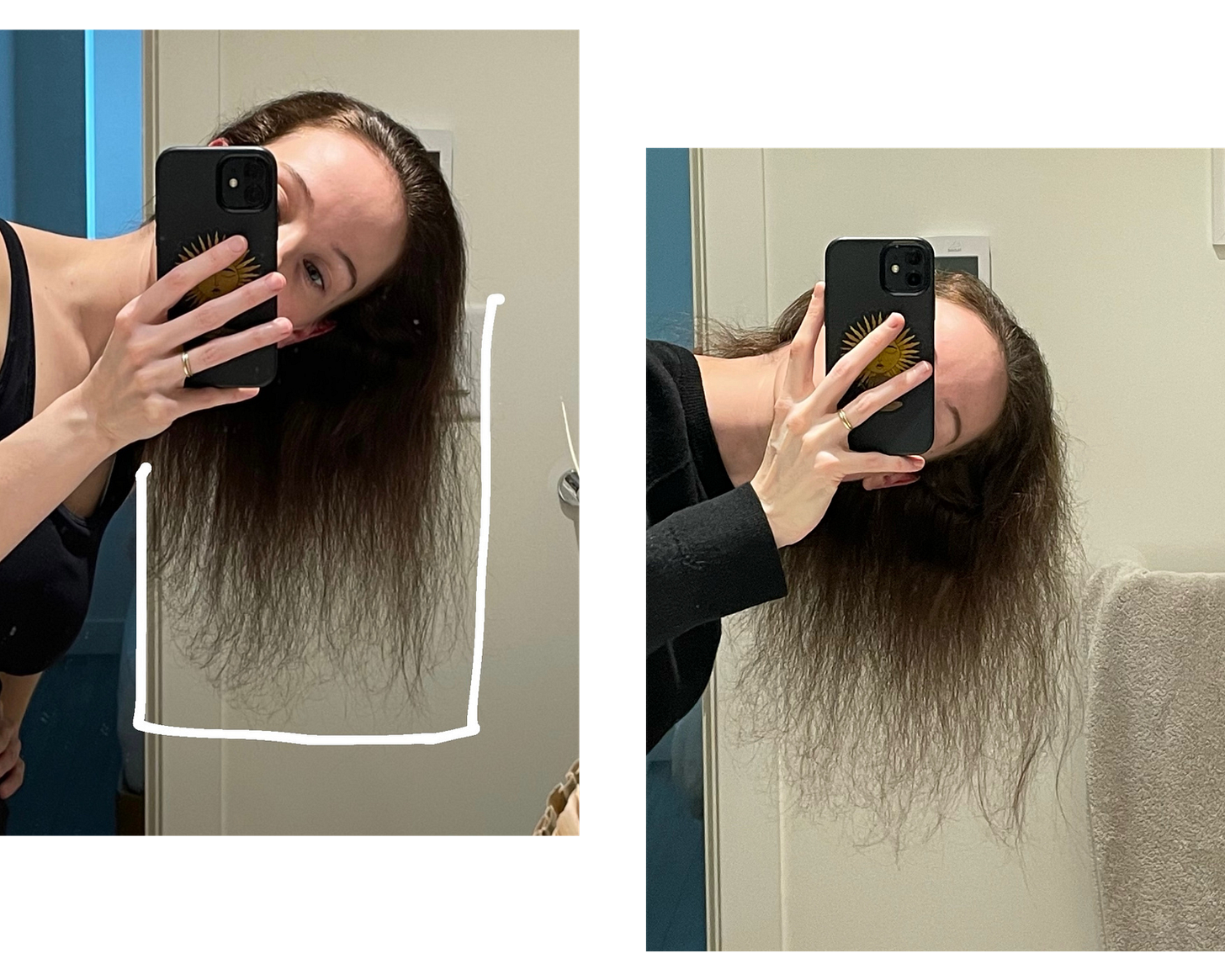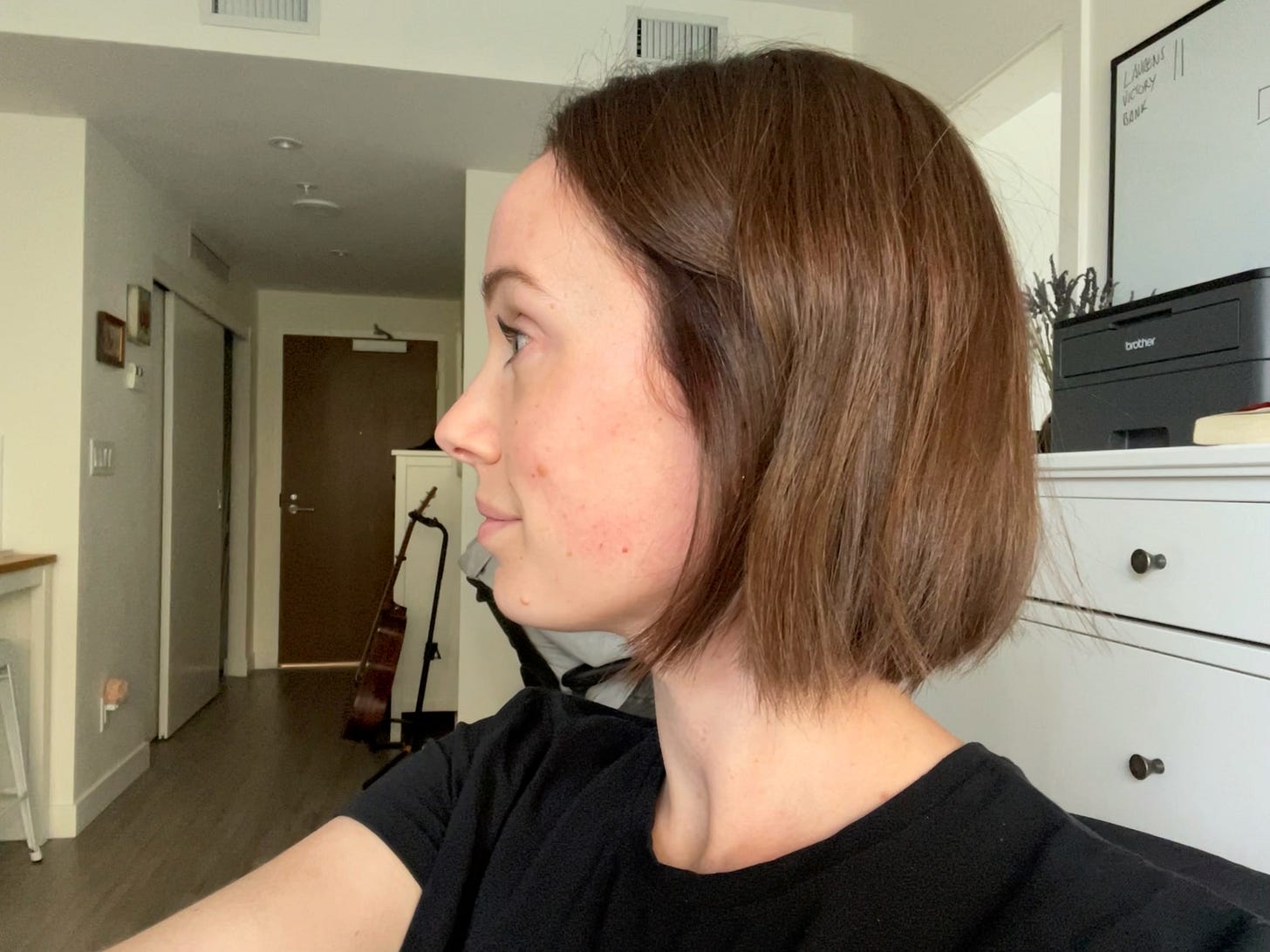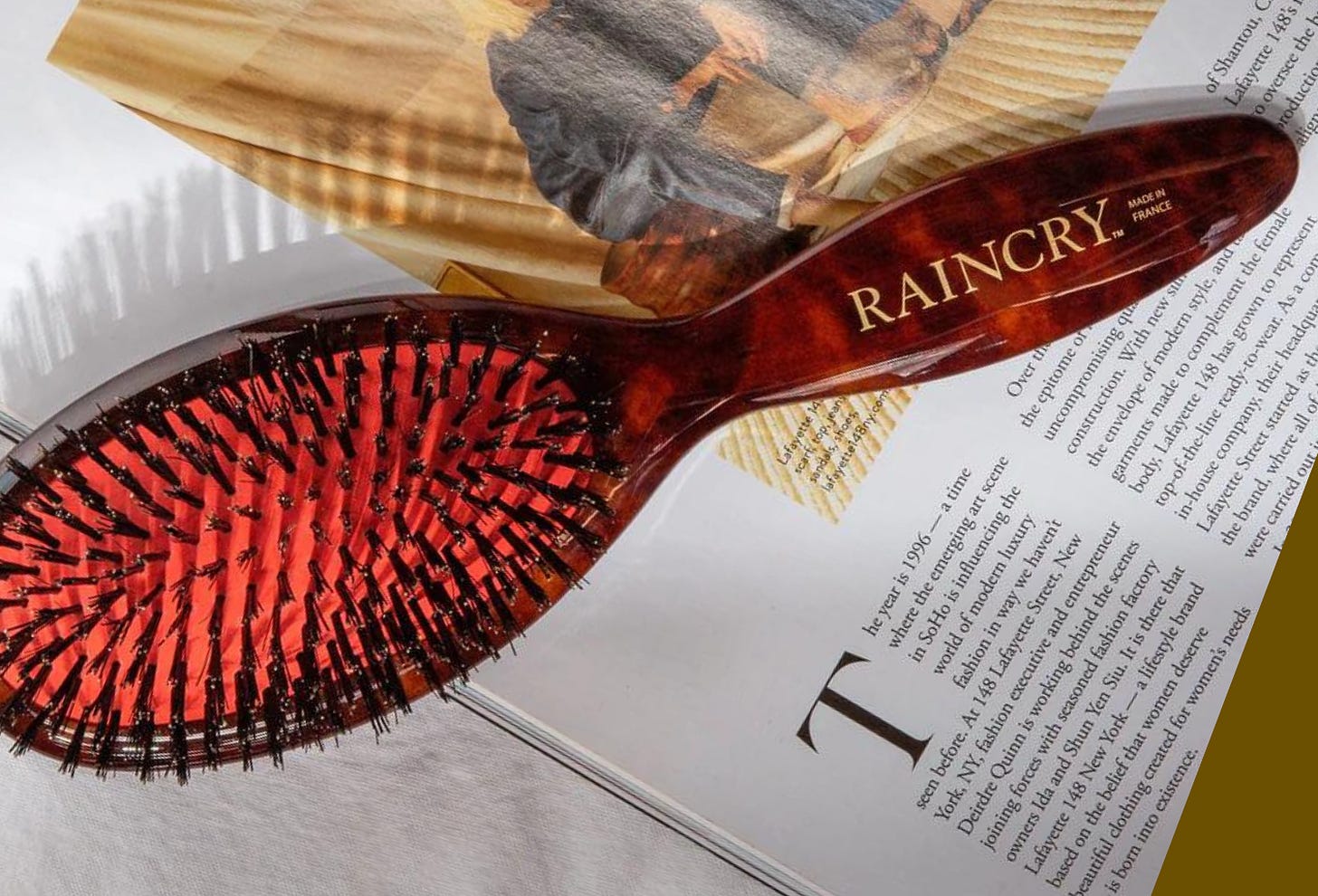What Trichologists Wish You Knew About Hair Care
Debunking the four most common myths with Angela Downs and Kara Hanson.
At some point over the past year, my hair spontaneously decided to leap off my head. I like to believe the concept that the body knows best, but I was having a hard time understanding why my body was steering this 35 year old ship towards complete baldness without prior notice. The length, density, and overall quality of my hair vanished before my eyes. I started educating myself on wigs in preparation for the worst and, after not receiving much more than a shrugged shoulder from the medical system, decided to consult a trichologist.
Before this year, I had never heard the term trichology. For those of you who don’t know, a trichologist is a specialist who studies and treats the problems and diseases related to the hair and scalp. I never imagined myself sitting in an office with tears streaming down my face asking if one could help me, but earlier this year, that’s exactly what I did.
I’m not going to get into the details of what may or may not have caused my hair loss, but I will share a few photos below that capture the very emotional experience, as well as, what my hair looks like now.
Thankfully, I ended up in the right hands and things have improved since the first photos were taken. Although my hair is much shorter, it’s denser, smoother, and healthier. More importantly, my anxiety over going bald at 35 has subsided and I have gained back some much needed confidence. During my last visit, I told the trichologists that I wanted to put an article together for my newsletter to share the knowledge I had learned from them. We had a great conversation about what people come into their office “knowing” about hair care (myself included) and what they wish people actually knew.
The information below is paraphrased and summarized from multiple visits, conversations, and emails with trichologists Angela Downs and Kara Hanson (A&K) of Capilia Victoria.
Angela Downs, IAT Trichologist
Kara Hanson (Owner), IAT Trichologist, Educator, WTS Accredited
Myth #1: Washing your hair less often is better for your scalp.
L: I cannot count the number of times I’ve been told to only wash my hair once a week, or as little as possible. Once I began losing hair, I fell right into this trap. I’ve actually been scared to wash my hair because most of my shedding comes out in the shower and I don’t want to further aggravate the situation. What are your thoughts?
A&K: Washing your hair often (every 2-3 days), and in some cases everyday, is necessary if you are sebaceous. Not everyone has the same type of sebum (oil) production on their scalp. Some individuals have a thicker and stickier oil that stays on the scalp, while others have thinner oil that moves down the hair shaft more easily. It might seem convenient for those who don’t get ‘greasy’ looking hair, but the sticky immobile oil can clog up the hair follicle, collect debris/sweat/product build-up, and create an environment on the scalp that makes it hard for the hair to grow and thrive. We look at the scalp with a trichoscope, test the pH, and check for any viral/bacterial infections to confirm the environment we’re working with before making a recommendation, but to answer your question, washing your hair less often is not typically better for your scalp.
Myth #2: Dry shampoo is good for the in-between washing days.
L: Ok, what about dry shampoo? Does that help with the oil build up?
A&K: The name is misleading, unlike shampoo it does not actually cleanse your scalp at all. This product is designed to add a coating on top of your scalp that expands and absorbs the oil, creating a cement-like layer of powder, sebum, and whatever else (often chemicals) is in the mix. This coating blocks hair follicles and is very noticeable when analyzing scalps with our trichoscope. Avoiding dry shampoo is best practice, but if you MUST use it in a pinch or for a special event, make sure to wash your scalp really well afterwards.
Myth #3: It’s not necessary to brush your hair.
A&K: How often do you brush your hair?
L: Other than a quick detangle after the shower… never? Is this something I’m supposed to do?
A&K: Brushing your scalp and hair is beneficial for many reasons. It relaxes and exfoliates the scalp to remove plaque and product, aids blood flow, and helps pull the sebum (natural oil) down the hair shaft. We recommend a 100% boar bristle brush to stimulate and care for your scalp health. One hundred strokes is excessive and can create friction to the hair strands but 30 seconds will do you a lot of good! Remember to only brush your hair when it’s dry. A quick detangle is okay when it’s wet, but it’s in too delicate of a state for a proper brushing.
Myth #4: Biotin is the best supplement for hair growth.
L: Everyone is telling me to take biotin, does it really work?
A&K: There’s always a trendy vitamin or supplement and yes, we need Biotin in our body for many reasons, but if you eat a balanced diet you are most likely getting more than enough. The research on Biotin for hair and nail growth remains ambiguous and there are side effects if taking a high dose. It can also interact with other drugs so we always direct our clients to their pharmacist or medical practitioners to be sure this is the right option for their health. Eating more greens is a better way to increase your biotin levels.
L: I suspected it was too good to be true. Do you know any vitamins and supplements that help with hair growth?
A&K: If you are going to take any vitamins or supplements, we recommend taking the daily allowable amount of Vitamin D. Most of us (in Canada) have low levels because we lack sunshine a good majority of the year. Vitamin D is good for our overall health and is very helpful in hair growth production. Omegas are another wonderful assistant. We recommend daily omega consumption due to its moisturizing and anti-inflammatory properties, which aid in scalp health and will help promote good hair growth.
As someone with dry hair and an oily scalp, I was amazed at how much of a difference I noticed within one month of using a boar bristle brush and washing my hair more often (every 1-2 days). The texture and shine of my hair is much nicer and I have some new growth coming in! Hair masks and conditioning treatments have nothing on the power of our naturally produced oils. Don’t get me wrong, things aren’t perfect and hair growth takes time (literally years) so I need to be diligent with these new practices, but I’m grateful for the results I’ve experienced so far. I hope that by sharing this vulnerable experience, somebody else out there who might be self-conscious about their hair can find a little peace.
A big thank you to Angela Downs and Kara Hanson at Capilia Victoria for letting me put this interview together. The quality of service they offer is top notch - I hope you won’t need their expertise (because hair loss sucks), but if you do, I highly recommend a visit. Be sure to book in advance though, they are popular!









Thanks for sharing, Lauren. The short cut looks super cute on you! I just went out and bought myself a boar bristle hair brush based on your informative post! :)
This was so informative Lauren! Your hair looks great :) Where did you get your brush from?